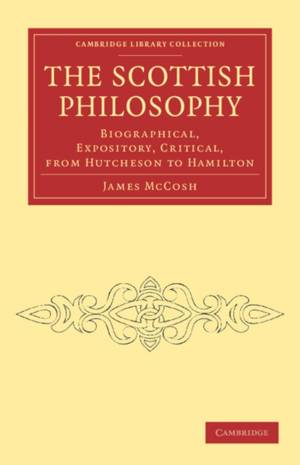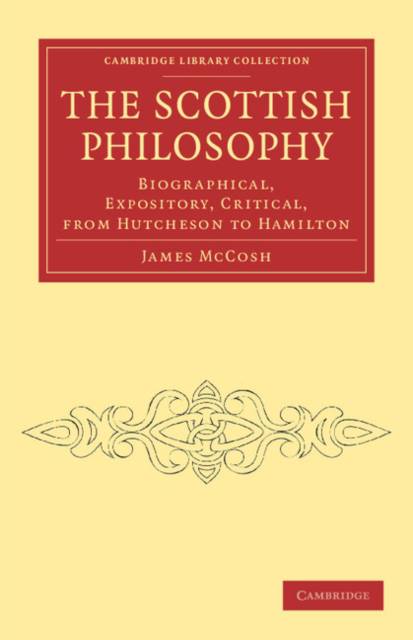
- Afhalen na 1 uur in een winkel met voorraad
- Gratis thuislevering in België vanaf € 30
- Ruim aanbod met 7 miljoen producten
- Afhalen na 1 uur in een winkel met voorraad
- Gratis thuislevering in België vanaf € 30
- Ruim aanbod met 7 miljoen producten
Zoeken
€ 95,45
+ 190 punten
Uitvoering
Omschrijving
James McCosh (1811-94), the Scottish philosopher, graduated from the University of Glasgow, spent some time as a minister in the Church of Scotland but then returned to philosophy and spent most of his career at Princeton University. The eighteenth-century Scottish Enlightenment had many influential philosophers at its core. In this book, first published in 1875, McCosh outlines the theories of eighteenth- and nineteenth-century philosophers and identifies Scottish philosophy as a distinct school of thought. He summarises both the merits and the possible criticisms of each philosopher's work and also gives detailed biographical information. Among the philosophers discussed are the influential David Hume, Thomas Reid and Adam Smith. The final chapter focuses on Sir William Hamilton, a philosopher who greatly influenced McCosh (whose other works, The Religious Aspect of Evolution and The Method of the Divine Government are also reissued in this series).
Specificaties
Betrokkenen
- Auteur(s):
- Uitgeverij:
Inhoud
- Aantal bladzijden:
- 494
- Taal:
- Engels
- Reeks:
Eigenschappen
- Productcode (EAN):
- 9781108040860
- Verschijningsdatum:
- 22/12/2011
- Uitvoering:
- Paperback
- Formaat:
- Trade paperback (VS)
- Afmetingen:
- 140 mm x 216 mm
- Gewicht:
- 621 g

Alleen bij Standaard Boekhandel
+ 190 punten op je klantenkaart van Standaard Boekhandel
Beoordelingen
We publiceren alleen reviews die voldoen aan de voorwaarden voor reviews. Bekijk onze voorwaarden voor reviews.







